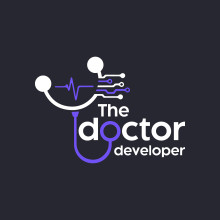Course description
Undergraduate medical education, commonly known as medical school or pre-medical studies, is an academic pathway taken by individuals aspiring to become medical doctors. This education is an essential foundation for a future career in healthcare. Here is a description of the typical courses and components of undergraduate medical education:
1. **Preclinical Years:**
- **Anatomy:** Study of the structure and organization of the human body, often involving cadaver dissection and detailed understanding of organs, tissues, and systems.
- **Physiology:** Focuses on the normal functioning of the human body's various systems, such as cardiovascular, respiratory, and nervous systems.
- **Biochemistry for undergraduates:** Understanding the chemical processes and molecules within the body, particularly relating to metabolism and cell function.
- **Histology:** Study of microscopic anatomy, including cells and tissues.
- **Pathology:** Understanding the nature of diseases, their causes, development, and the effects on the human body.
2. **Clinical Years:**
- **Clinical Medicine:** Learning the art and science of diagnosing and managing medical conditions in a real-world patient care setting, often through hospital and clinic rotations.
- **Pharmacology:** Understanding drugs, their actions, uses, and potential side effects.
- **Microbiology and Immunology:** Studying microorganisms, infections, and the body's immune response.
- **Public Health and Preventive Medicine:** Learning about population health, preventive strategies, and healthcare policies.
3. **Integrated Courses:**
- **Medical Ethics and Law:** Understanding the legal and ethical aspects of medical practice, patient rights, and responsibilities of healthcare professionals.
- **Behavioral Sciences:** Exploring the psychological and sociological aspects of health and healthcare delivery.
- **Research Methodology and Evidence-Based Medicine:** Teaching critical appraisal of medical literature, research design, and statistical analysis.
4. **Electives and Specializations:**
- **Elective Rotations:** Opportunities to explore various specialties and subspecialties within medicine, helping students identify their areas of interest.
- **Specialized Courses:** Advanced coursework in chosen medical specialties like surgery, pediatrics, Internal medicine for undergraduates, obstetrics and gynecology, psychiatry, etc.
5. **Practical Training and Internship:**
- **Clinical Clerkships:** Hands-on training in hospitals and clinical settings, working closely with physicians and healthcare teams.
- **Internship:** A mandatory year of supervised practice, where students apply their knowledge and skills under guidance, preparing them for independent medical practice.
Undergraduate medical education is rigorous and demanding, aiming to equip students with the knowledge, skills, and ethical foundation necessary to provide competent and compassionate healthcare to patients. It lays the groundwork for subsequent postgraduate education and specialized training in specific medical disciplines.






